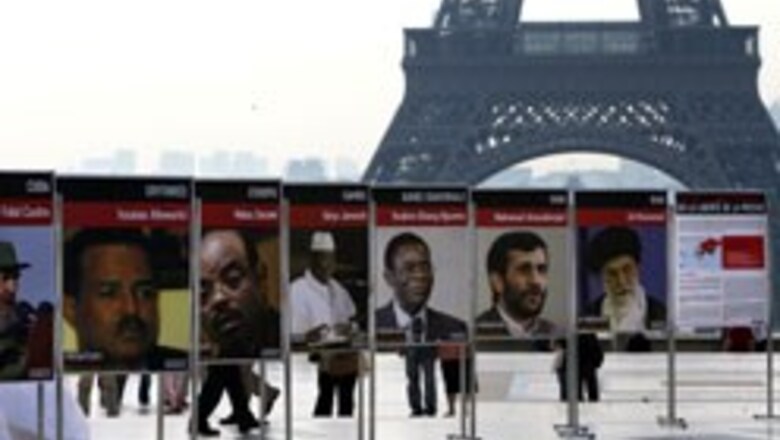
views
Singapore: Press freedom violations remained at ''alarming levels'' across Asia in 2006, but the proliferation of independent news outlets is a positive development, an international watchdog group said.
Sixteen journalists were killed in Asia last year, while at least 328 were arrested and 517 physically assaulted or threatened, Paris-based Reporters Without Borders said in its annual report, released on Thursday.
Seven of the deaths were amid separatist fighting in Sri Lanka, the report said. It said pro-government militia and the army have been responsible for some attacks on media members, while the Tiger Tamils have threatened journalists critical of their political position.
The report noted that the Philippines, where six journalists were killed, had arrested and convicted murder suspects in some cases.
But it said Philippine authorities have failed to stop a continuing wave of anti-media violence, and criticized a number of lawsuits filed against media by the president's husband.
''Murders, assaults, arrests, abusive lawsuits and censorship were the hallmark of 2006 in this country (the Philippines),'' the report said.
The report focused largely on censorship, calling it an ''Asian custom.''
''There are very few Asian countries which allow absolutely anything to be said or written,'' it said.
''Governments in Asia still have a number of laws at their disposal which allow them to imprison journalists for press offenses,'' it said, adding that many leaders also use the press as a propaganda tool.
Chief among the report's offenders was North Korea, where news content is totally controlled by the government and journalists are under police surveillance and work under the threat of re-education.
The report said Myanmar also imposes an ''iron grip'' on the media.
In Vietnam and China, whose governments also use the press to put out their own messages, some liberal media emerged - but only to be subsequently suspended, the report said.
PAGE_BREAK
The report criticised Thailand's new military leadership, saying it has shut down hundreds of community radio stations and pressured journalists.
''In the past, we suffered from self-censorship,'' it quoted an unidentified Thai journalist as saying. ''Today, we cannot even investigate the activities of the junta. ... We are being stifled.''
Singapore news media use self-censorship on domestic politics, and the government has stifled opposition through measures such as defamation suits, the report said.
It said Singapore's government also tried to ''browbeat the foreign press into submission in 2006'' through defamation cases and media laws requiring legal representation and large cash deposits in case of lawsuits.
Independent publications are rare in neighboring Malaysia, where the report said there are strong links between ruling parties and news outlets. ''Media concentration in the hands of the families of government members'' increased in 2006, it said.
On the positive side, the report lauded India for a press that counterbalances the government.
It also praised Cambodia's ''courageous decision'' to decriminalize defamation,'' and hailed Indonesia for dropping the offense of insulting the head of state.
The report praised the increase in private TV channels in Pakistan, Afghanistan, China and India as one of the ''genuinely hopeful signs on the continent.''


















Comments
0 comment